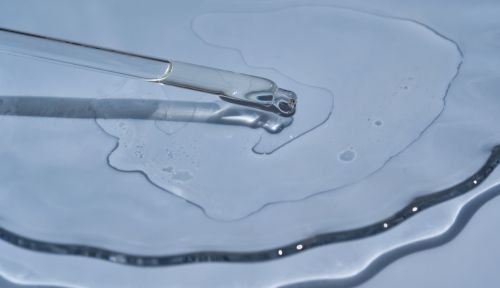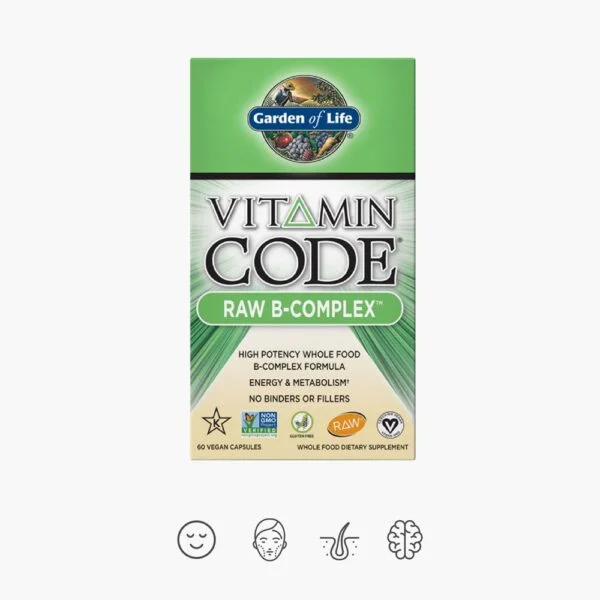Vitamin B5, also called pantothenic acid, is one of the most important vitamins for human life. It is essential for the production of blood cells and helps you convert the food you eat into energy. Vitamin B5 is one of the eight group B vitamins, which help you convert proteins, carbohydrates and fatsthat you eat into energy. B vitamins are also needed:
- for healthy skin, hair and eyes
- for the proper functioning of the nervous system and liver
- for a healthy digestive system
- for the production of red blood cells, which carry oxygen throughout the body
- for the production of sex- and stress-related hormones in the adrenal glands
Vitamin B5 is essential for our body, so in this article we will discuss its sources, need, consumption, use in cosmetic industry, chemical compounds and other important details.

Vitamin B5 and its sources
The best way to ensure you get enough vitamin B5 is to eat a healthy, balanced diet every day.
Vitamin B5 is easily included in a good nutritional plan. It is found in many vegetables, including:
- broccoli
- cabbage
- potatoes
- whole grain porridge
Other healthy sources of vitamin B5 include:
- mushrooms
- nuts
- beans
- peas
- lenses
- meat
- poultry
- dairy products
- eggs
How Much Vitamin B5 Should You Get?
As with most nutrients, the recommended amount of vitamin B5 depends on age. These are the recommended daily rates:
| Age | Recommended daily intake of vitamin B5 |
|---|---|
| Babies up to 6 months | 1.7 mg |
| Babies 7-12 months. | 1.8 mg |
| Children 1-3 years old | 2 mg |
| Children 4-8 years old. | 3 mg |
| Children 9-13 years old | 4 mg |
| 14 years old and older | 5 mg |
| Pregnant or lactating women | 7 mg |
Vitamin B5 deficiency is very rare in Europe. Generally, only depressed people can be deficient in B5. According to health experts, vitamin B5 deficiency is unlikely to cause any medical problems. However, people who are deficient in B5 often have other vitamin deficiencies at the same time. Symptoms of B5 deficiency may include:
- headache
- fatigue
- irritability
- impaired muscle coordination
- digestive system problems
Symptoms usually disappear when you start getting enough vitamin B5.

Use of vitamin B5 in medical disorders
People take vitamin B5 supplements to help improve their condition. These conditions are:
- acne
- ADHD
- alcoholism
- allergies
- asthma
- baldness
- burning leg syndrome
- wart tunnel syndrome
- celiac disease
- chronic fatigue
- colitis
- conjunctivitis
- convulsions
- cystitis
- dandruff
- depression
- diabetic nerve pain
- dizziness
- increased prostate
- headaches
- heart failure
- insomnia
- irritability
- leg cramps
- low blood pressure
- low blood sugar levels
- sclerosis
- muscular dystrophy
- neuralgia
- obesity
- osteoarthritis
- Parkinson's disease
- PMS
- respiratory disorders
- rheumatoid arthritis
- tongue infections
- wound healing
Health professionals pay attention to choose only natural food supplements from reliable manufacturers. Therefore, it is often recommended to use:
-
Garden of life Vitamin Code RAW B-COMPLEX – vitamins of group B complete with antioxidants, probiotics and enzymes. Bioactive complex, 60 vegcapsules39,90 €Rated 5.00 out of 5 based on 2 customer ratings
Although people take vitamin B5 to reduce these problems, more research is needed to determine its effectiveness.
Vitamin B5 in cosmetics
Vitamin B5 is often added to cosmetics for hair and skin products. Dexpanthenol, a chemical compound made from B5, is used in creams and lotions to moisturize the skin.
In hair products, vitamin B5 can help add thickness and shine to hair. It is also said to improve the texture of hair that has been damaged by styling or chemicals. One investigation found that the use of a compound containing panthenol, a form of vitamin B5, can help stop it hair loss. However, it will not speed up your hair growth.

Supplementation of vitamin B5
It can also be applied to the skin to reduce itching and promote healing of skin conditions such as:
- eczema
- insect bites
Dexpanthenol has also been used to prevent and treat skin reactions from radiation therapy.
Scientists are studying pantethine, a chemical made from vitamin B5, to see if it can lower cholesterol. One investigation reported that pantethine use for up to 16 weeks can reduce LDL-C, or "bad" cholesterol. The study also found that it can help reduce the risk of heart disease.
Summary
Vitamin B5 is an important vitamin that helps your body make blood cells and convert food into energy. As long as you eat a varied and healthy diet that includes a variety of foods, you are unlikely to become deficient in vitamin B5 or need a supplement.












